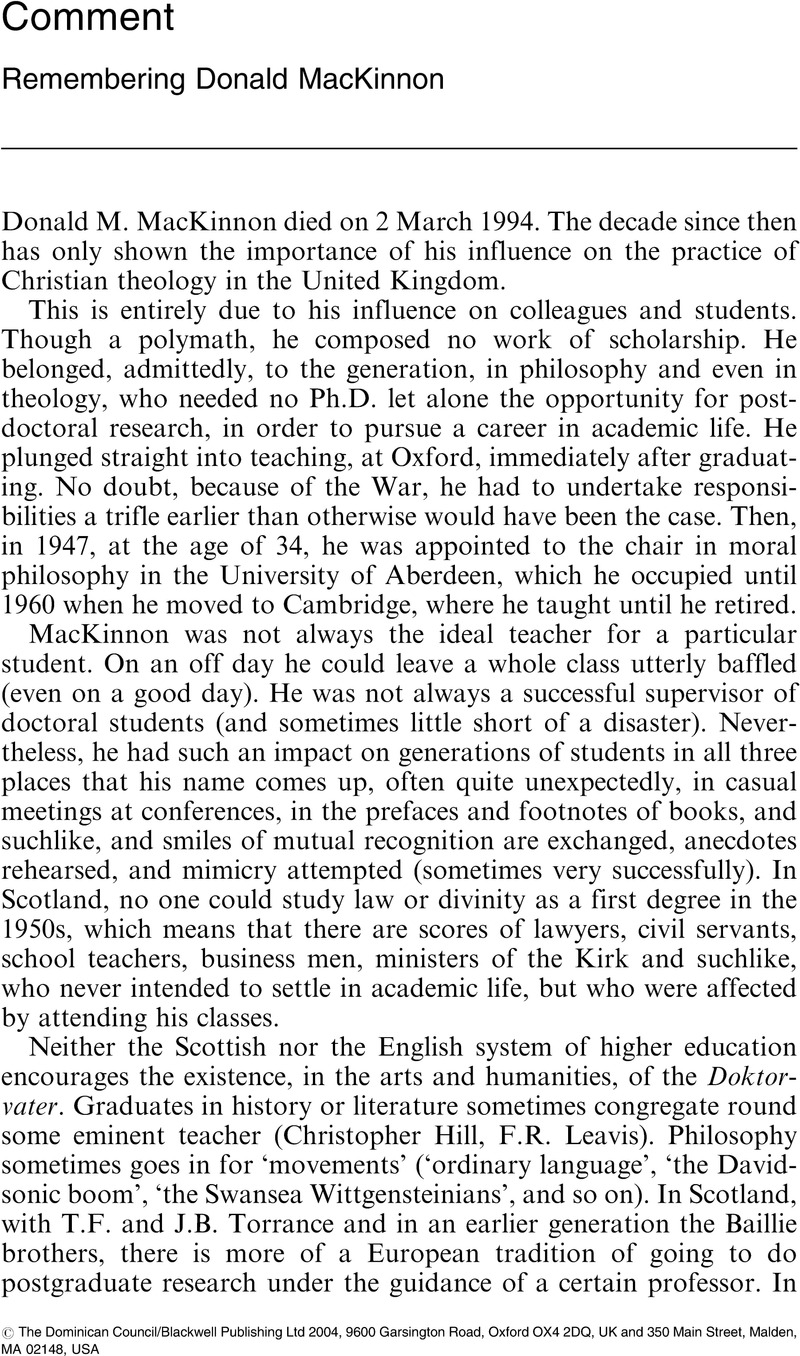Crossref Citations
This article has been cited by the following publications. This list is generated based on data provided by Crossref.
McDowell, John C.
2020.
Twentieth Century Anglican Theologians.
p.
73.
Berkman, John
2021.
The Influence of Victor White and the Blackfriars Dominicans on a young Elizabeth Anscombe: An Essay accompanying the Republication of G.E.M. Anscombe's ‘I am Sadly Theoretical: It is the Effect of Being at Oxford’ (1938).
New Blackfriars,
Vol. 102,
Issue. 1101,
p.
706.



